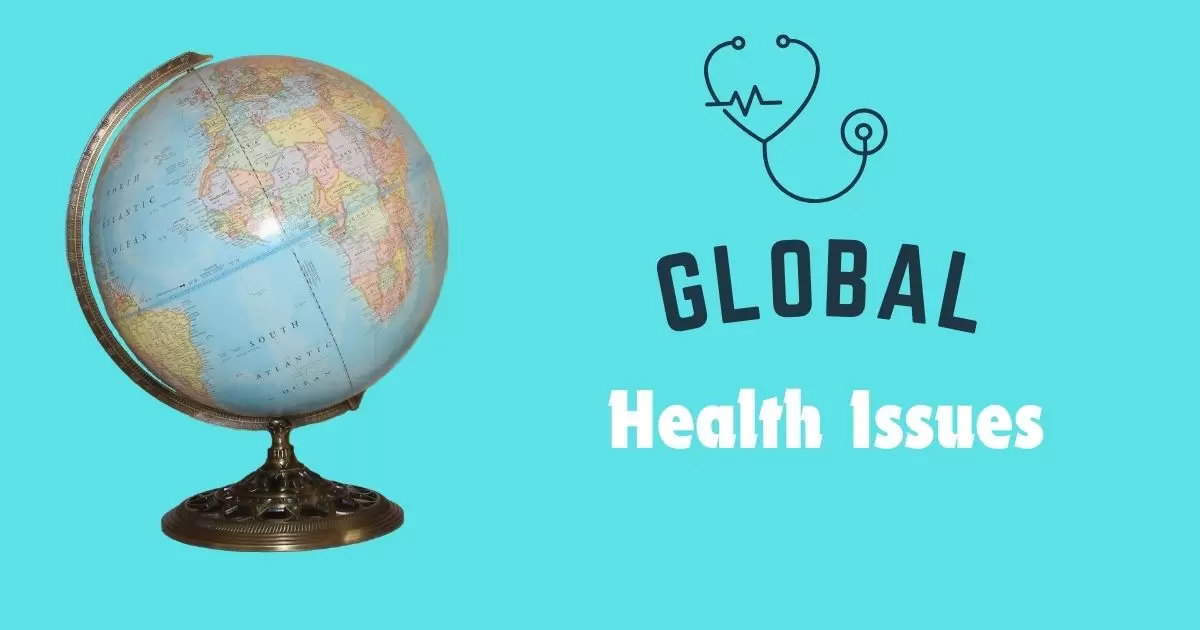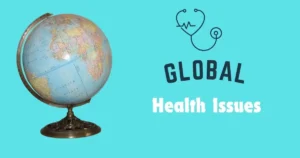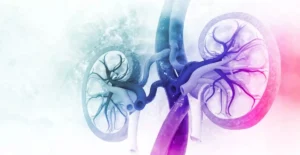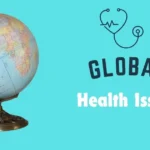Global health crises are health problems that affect people worldwide. They don’t stay in one country. These issues can spread quickly. They impact people’s well-being worldwide.
Our world faces many health threats. These issues cross borders. They affect people everywhere. From infectious diseases to chronic illnesses, global health issues touch us all. We must work together to solve them. This article explores key global healthcare systems and ways to address them.
Today, we face both old and new public health challenges. Some diseases we’ve fought for years still persist. New threats also emerge. Climate change affects health too, so does poverty. To tackle these issues, we need a global approach. This means working across borders. It means sharing knowledge and resources. Only then can we build a healthier world for all.
The spread of infectious diseases
Infectious diseases remain a major global health challenge. They can spread rapidly across borders, affecting millions worldwide. Common examples include HIV/AIDS, malaria, and tuberculosis. In recent years, new threats like COVID-19 have emerged, highlighting the ongoing risk of pandemics.
Efforts to combat infectious diseases focus on prevention and treatment. Vaccination programs have made significant progress in reducing the spread of many diseases. However, challenges persist, including vaccine hesitancy and the emergence of drug-resistant strains. Improving global health infrastructure and early warning systems is crucial for managing future outbreaks.
Read More: Successful Health Coach
The Rise of Chronic Diseases
Chronic diseases, also known as non-communicable diseases (NCDs), are becoming increasingly prevalent worldwide. These include conditions like heart disease, cancer, diabetes, and chronic respiratory diseases. Lifestyle factors such as poor diet, lack of physical activity, and tobacco use contribute significantly to their rise.
The impact of chronic diseases extends beyond individual health. They place a substantial burden on healthcare systems and economies. Many low- and middle-income countries now face a “double burden” of disease, dealing with both infectious diseases and a growing prevalence of NCDs. Addressing this challenge requires a focus on prevention, promoting healthier lifestyles, and improving access to long-term care.
Mental Health: A Global Priority
Mental health is gaining recognition as a critical component of overall well-being. Conditions such as depression, anxiety, and substance use disorders affect millions globally. Despite its importance, mental health often receives less attention and funding compared to physical health issues.
Stigma and lack of resources are major barriers to mental health care in many parts of the world. Many countries face a shortage of mental health professionals and facilities. Improving mental health care access and quality is essential for global health. This includes integrating mental health services into primary care, increasing public awareness, and addressing social determinants of mental health.
Read More: Health Insurance for Nanny
Maternal and Child Health Challenges
Maternal and child health remain a critical global health priority. Despite progress, many countries still struggle with high rates of maternal and infant mortality. Key issues include lack of access to prenatal care, malnutrition, and inadequate healthcare during childbirth.
Improving maternal and child health has far-reaching benefits for societies. It includes ensuring access to family planning services, improving nutrition, and expanding vaccination programs. Education plays a crucial role, empowering women and communities with knowledge about health and childcare. Addressing these challenges is essential for breaking cycles of poverty and improving overall population health.
The Global Threat of Antimicrobial Resistance
Antimicrobial resistance is a growing threat. This happens when germs become resistant to medicines. It makes infections harder to treat. Overuse of antibiotics is a main cause. So is misuse. This problem affects all countries. It could make common infections deadly again.
We need new antibiotics to combat this threat. We also need to use existing ones wisely. Education is key. Doctors must prescribe antibiotics correctly. Patients must use them as directed. Farmers should reduce antibiotic use in animals. Global cooperation is essential to tackling this issues.
Read More: Health and Wellness
Climate Change and Global Healthcare Systems
Climate change affects health in many ways. It leads to more extreme weather events. These can cause injuries, deaths, and displacement. Climate change also affects food and water supplies. It can worsen air pollution. This impacts respiratory health.
We must act to reduce climate change’s health impacts. This means cutting greenhouse gas emissions. It also means preparing health systems for climate-related challenges. We need early warning systems for extreme weather. We must protect water sources. Promoting sustainable agriculture helps too. Health should be central to climate change policies.
Health Inequalities and Access to Care
Health inequalities exist within and between countries. Poor people often have worse health outcomes. They may lack access to healthcare. Rural areas often have fewer health services. Some groups face discrimination in healthcare settings.
Addressing these inequalities is crucial. We need universal health coverage. This means everyone can get essential health services. We must train more health workers. We need to distribute them fairly. Telemedicine can help reach remote areas. Policies should focus on the most vulnerable groups. This helps create a fairer, healthier world.
The Role of Technology in Global Pandemics
Technology is changing global pandemics. Mobile health apps help people manage their health. Telemedicine connects patients with doctors remotely. Artificial intelligence aids in diagnosis and treatment planning. Big data helps track disease outbreaks.
While technology offers great promise, challenges remain. Not everyone has access to these tools. Privacy and data security are concerns. We must ensure new technologies reach those who need them most. Training healthcare workers to use new tools is important. Ethical guidelines for health technology are needed too.
Read More: Dog Eye Health Issues
Nutrition and Food Security
Proper nutrition is vital for health. Yet malnutrition remains a global issue. Some people don’t have enough food. Others eat too much unhealthy food. Both can lead to health problems. Food insecurity affects millions worldwide.
We need sustainable food systems to address this. This means producing enough nutritious food for all. It also means making healthy food affordable and accessible. Education about good nutrition is key. School meal programs can help children. Supporting small farmers can improve food security. We must also reduce food waste.
FAQs
What are the biggest global health threats today?
The biggest global health threats include infectious diseases like COVID-19, chronic diseases like heart disease and diabetes, antimicrobial resistance, climate change impacts, and health inequalities.
How does climate change affect international health security?
Climate change leads to more extreme weather events, affects food and water supplies, and can worsen air pollution. These impacts can cause injuries, deaths, malnutrition, and respiratory problems.
Why is antimicrobial resistance a public health concern?
Antimicrobial resistance makes infections harder to treat. It could make common infections deadly again. It is caused by the overuse or misuse of antibiotics in humans and animals.
What is universal health coverage?
Universal health coverage means all people can access essential health services without financial hardship. It’s a key goal for improving international health and reducing inequalities.
How can technology improve global health?
Technology can improve health through telemedicine, mobile health apps, artificial intelligence for diagnosis, and big data for disease tracking. However, ensuring equitable access to these technologies is crucial.
Conclusion
Global mental health affect us all. They cross borders and impact lives worldwide. From infectious diseases to chronic illnesses, from mental health to climate change, the challenges are many. But so are the solutions. We have the knowledge and tools to make a difference. What we need now is action. This means working together across countries and sectors. It means investing in health systems and new technologies.
It also means addressing the root causes of health problems, like poverty and inequality. By tackling these issues, we can build a healthier world for everyone. Each of us has a role to play. Whether through our daily choices or by supporting global health issues, we can all contribute to a healthier future.












